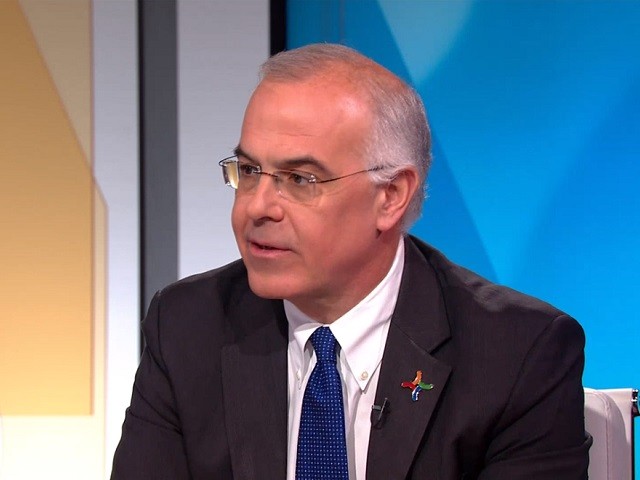In a segment on PBS NewsHour, David Brooks, a columnist for the New York Times, expressed his views on how Democrats should approach the upcoming presidency of Donald Trump. He emphasized that the Democrats’ reaction to Trump’s actions should not be defined solely by responding to each of his controversial statements or policies, a pattern he observed during Trump’s previous term. Brooks argued against the impulse to engage in a continuous “tit-for-tat” exchange of outrage, which he believes proved ineffective in the past four years. Instead, he urged Democrats and the media to develop a broader, more strategic vision that transcends Trump’s individual actions.
Brooks highlighted the danger of focusing too much on the immediate provocations that Trump is likely to generate. He noted that Democrats may be tempted to react to what he termed the “outrage du jour,” which signifies the cycle of rapid fire criticisms and reactions to Trump’s announcements or policy shifts. According to Brooks, this approach could lead to a distraction from the bigger issues at hand and might hinder the Democrats’ ability to present a coherent and appealing vision to the electorate. He stressed the importance of strategic planning and long-term thinking in political discourse rather than being ensnared in the continuous back-and-forth of political outrage.
Reflecting on the implications of the 2024 election results, Brooks advised the Democratic Party to refrain from quick judgments and emotional reactions to Trump’s presidency. He pointed out that the unexpected outcomes of elections can often take time to understand and analyze. Thus, Brooks underscored the necessity for the Democrats to be measured in their approach, avoiding knee-jerk responses that can lead to miscalculations about voter sentiment. He cautioned against making hasty decisions based on partial information or sensationalism that might arise in the political arena.
Moreover, Brooks’s call for a vision larger than Trump indicates his concern for the overarching narrative that the Democrats need to establish. He believes it is crucial for them to articulate a clear and compelling message that resonates with voters beyond the Trump centric discourse. In doing so, Democrats can build a stronger identity that reflects their values and proposals for governance rather than merely playing defense against Trump’s agenda. This larger vision, Brooks argues, would allow them to take the high road in political debates and connect with constituents on deeper issues that matter to them.
In addressing the role of the media, Brooks also suggested that journalists should refrain from falling into the same trap of reactiveness that he warned against for the Democrats. He noted that the media should strive to provide context and insight rather than only reporting on the immediate flashes of controversy that Trump generates. By cultivating a more thoughtful media landscape, Brooks believes that the public will be better equipped to understand the complexities of the political climate and engage with substantive discussions rather than just sensationalized news coverage.
Overall, David Brooks’s analysis presents a pathway for Democrats in the age of Trump that focuses on vision, strategy, and long-term engagement rather than reactive politics. His insights call for patience and reflect a belief that rising above the noise of daily outrages can help create a more constructive political environment. By concentrating on issues of importance and delivering a cohesive platform, the Democratic Party can position itself effectively against the backdrop of Trump’s presidency, engaging voters on a level that encourages commitment and trust rather than mere opposition.

